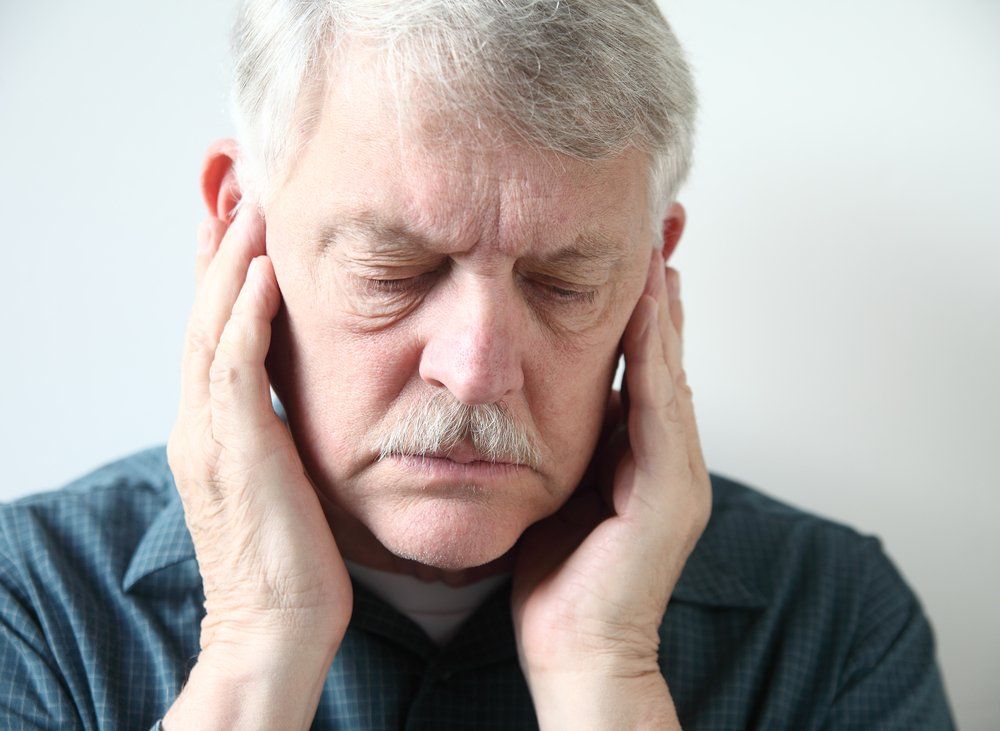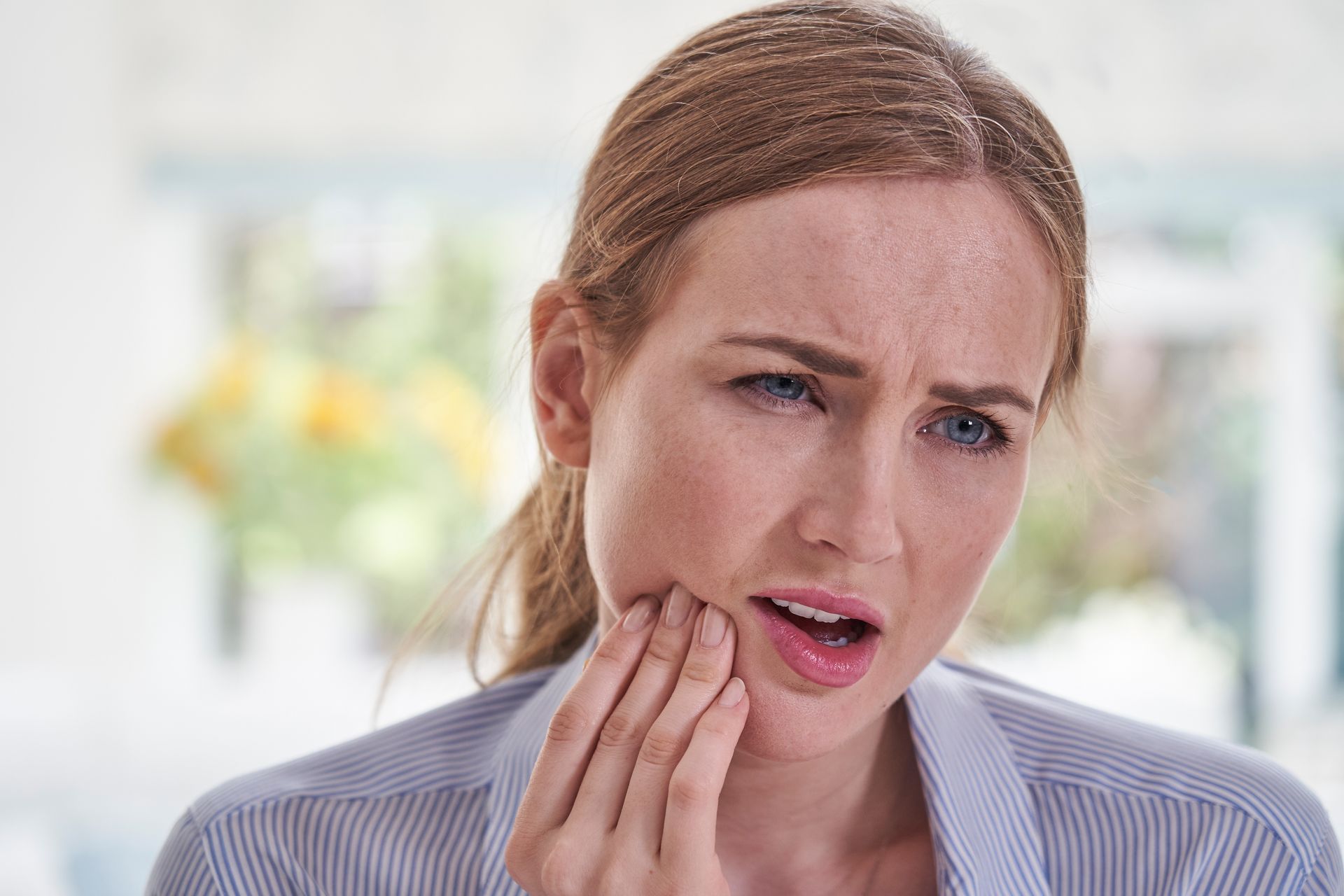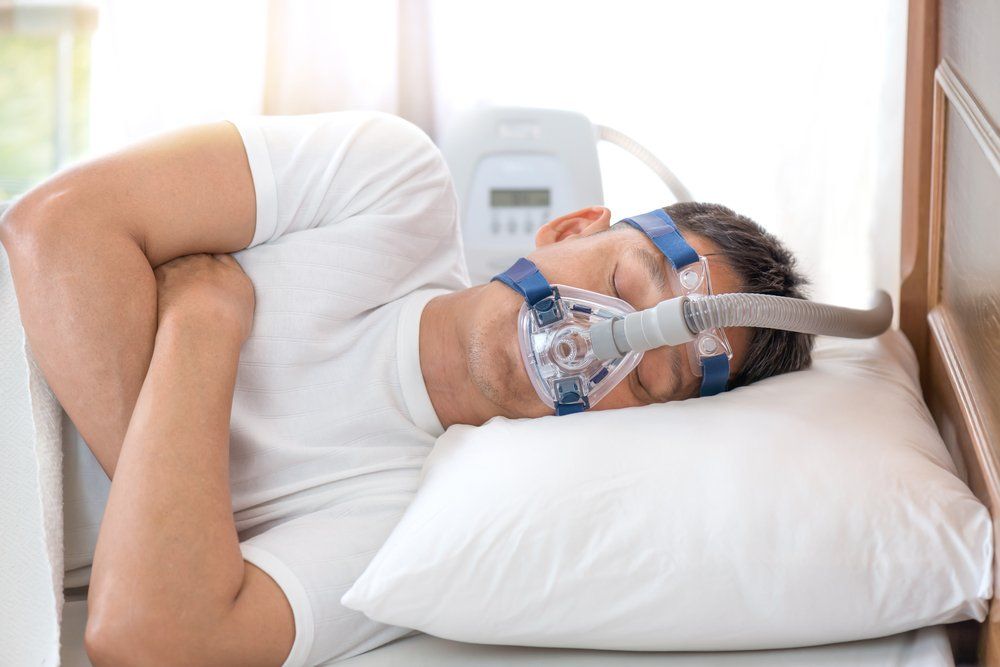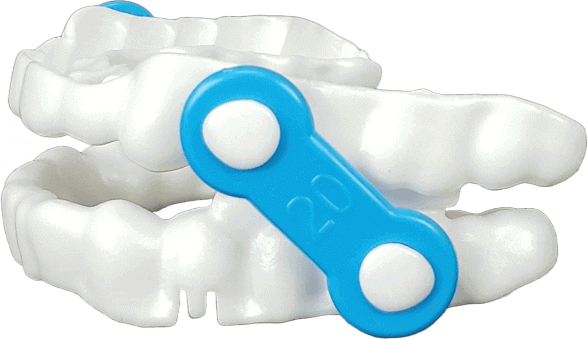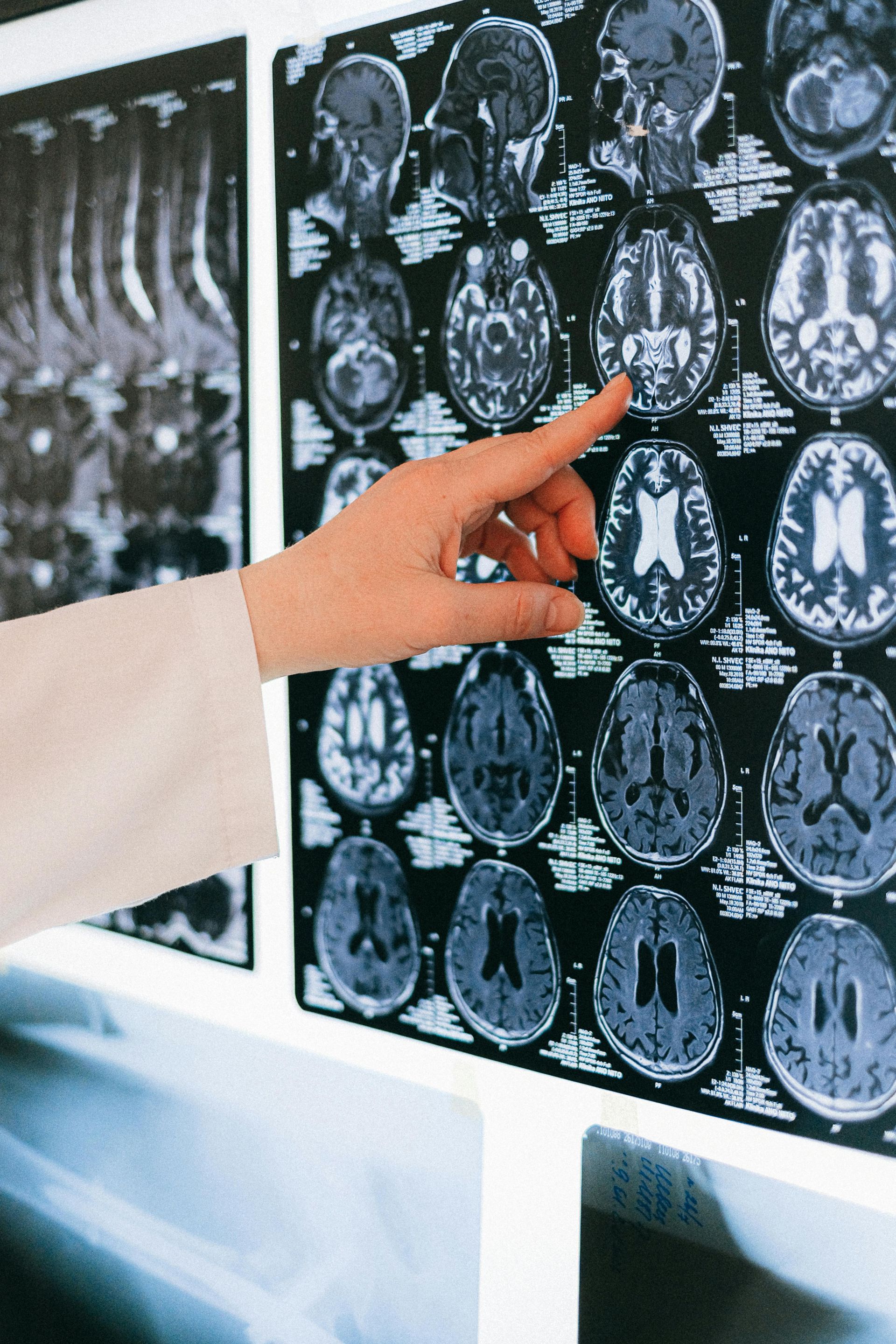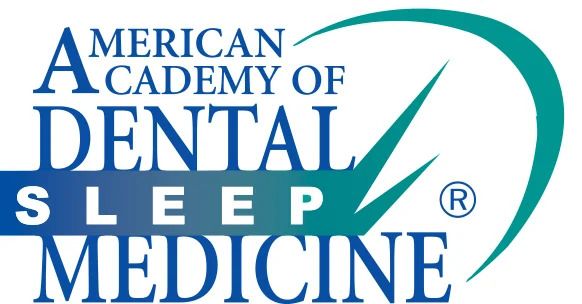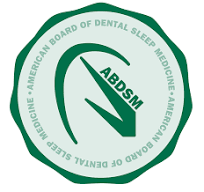Preventing TMJ Flare-Ups
Updated 03/26/2025
A TMJ flare-up is an unpredictable and sudden increase in pain or other symptoms related to temporomandibular joint (TMJ) disorders. While generally temporary, flare-ups can be uncomfortable and painful. However, in many cases, they can be minimized or completely prevented by understanding what triggers them.
The temporomandibular joint (TMJ) is the hinge joint that connects your jaw to your skull. It enables you to perform seemingly simple actions like talking, eating, or yawning throughout the day. However, because of stress or other triggers, the TMJ and the muscles surrounding it can get inflamed or flare up, making those simple tasks suddenly painful or difficult.
The symptoms of a TMJ disorder, which include jaw pain, popping and clicking noises, headaches, ear pain, ear fullness, limited range of motion, and jaw locking, can be difficult to diagnose because they mimic symptoms of other conditions. For more than 15 years, TMJ specialists Dr. Katherine S. Phillips and Dr. YC Joseph FischerHahm of Restore TMJ & Sleep Therapy in The Woodlands have been diagnosing and treating these disorders, helping their patients manage the pain and symptoms of TMD.
Symptoms of a TMJ Flare-UP
Between 5% and 12% of adults are affected by some type of disorder with their TMJ. One of the worst parts about this condition is that there is a degree of uncertainty with it; you may feel fine one day and then wake up with jaw pain or clicking the next. Flare-ups are unpredictable and cause a variety of issues that can range in their duration and severity.
Symptoms of a TMJ flare-up, or a new TMJ disorder, include persistent or intermittent pain in the jaw, face, neck, or shoulders, frequent headaches, ear pain, ear fullness, and a clicking jaw with restricted movement.
Symptoms of a new or worsening TMJ disorder include:
- Jaw joint pain. Persistent or occasional pain in the TMJ, ranging from mild discomfort to more severe pain.
- General jaw pain. Pain that can be felt throughout the jaw, not necessarily isolated to the TMJ joint.
- Headaches. Frequent headaches that can vary from a constant dull ache similar to a tension headache to the sharp, piercing pain of a migraine.
- Jaw noises. Clicking or popping sounds in your jaw joint when eating, talking, chewing, or opening your mouth.
- Ear pain. Pain in the ear that can range from a dull ache to sharp, searing pain or ear fullness.
- Neck and shoulder pain. Tension in your jaw muscles can radiate to your neck or shoulders and sometimes be accompanied by muscle spasms and reduced flexibility.
- Tinnitus. Common in TMJ disorders, ringing in the ears can sound like a constant tone, high-pitched ringing, or even a roar.
- Muscle spasms. Spasms on the affected side of the face that involve twitching in the eye, cheek, and/or neck, either together or separately.
- Facial swelling. Noticeable swelling around the TMJ and surrounding facial muscles due to inflammation.
- Jaw tightness and lock jaw. A tight jaw with a limited range of motion when opening the mouth. In severe cases, the jaw may become immobile until the joint is realigned.
8 Common Causes of TMJ Pain and Flare-Ups
Common causes of TMJ pain and flare-ups include stress, which leads to teeth grinding or clenching; jaw injuries; poor posture; and chewing hard foods or gum. These can strain the TMJ, leading to discomfort and inflammation.
Recognizing the common triggers and causes of TMJ pain can help you minimize the discomfort of a flare-up or prevent it altogether. While different for everyone, the 8 most common triggers for TMJ flare-ups include:
1. Stress
Clenching the jaw is a common reaction to stress, and you might not even realize you’re doing it. Stress can also cause one to grind their teeth (bruxism). The constant pressure on the jaw joint and muscles can lead to pain and inflammation and trigger a flare-up.
2. Habitual Movements
Repetitive jaw movements, such as teeth grinding, chewing gum, or nail biting, can aggravate the TMJ. These movements may be intentional, such as with chewing gum, or from unconscious habits. Additionally, some medications, such as antidepressants and certain antipsychotics, can have side effects that include habitual jaw clenching or teeth grinding.
3. Jaw Injuries
Any trauma or injury to the jaw, such as a blow or an accident, can damage the jaw and the TMJ, leading to pain.
4. Arthritis
Conditions like osteoarthritis or rheumatoid arthritis can affect the TMJ. The wear and deterioration of the cartilage or the disk in the joint can cause misalignment or improper movement, leading to clicking, pain, or a reduced range of motion.
5. Poor Posture
Poor posture, especially hunching or slouching, can misalign your jaw and create tension in the surrounding muscles. Tightness in the neck muscles, whether from poor posture or injury, can put extra strain on the TMJ joint and contribute to a flare-up.
6. Diet
Chewing on hard or chewy foods like raw carrots, ice, or chewy candy can overwork the TMJ joint, especially during a flare-up. Additionally, vitamin D deficiency has been linked to various pain conditions, including TMJ pain—a well-balanced diet can prevent this.
7. Genetics
For those with a family history of TMJ disorders, they may be at an increased risk for developing TMJ issues. It will be particularly important to be aware of common triggers to prevent the onset of a TMJ disorder.
8. Hormones
TMJ issues are more prevalent in women than in men, at a ratio of three to one. This disparity is linked to hormonal fluctuations in women, especially estrogen levels. Hormonal changes may be a result of birth control, menstruation, pregnancy, or menopause. Studies have shown that TMD pain can be impacted by changes in estrogen levels.
5 Ways to Prevent TMJ Flare-Ups
The good news is there are things you can do to prevent TMJ flare-ups from taking over your life.
Here are 5 ways to manage or even prevent TMJ flare-ups.
1. Identify Your Triggers
The first step is figuring out what sets off your TMJ dysfunction. Common culprits include stress, poor posture, and habitual grinding or clenching. Keep a journal to track your activities, meals, and TMJ flare-ups and pain levels.
2. Manage Your Stress
Techniques like meditation, deep breathing exercises, and yoga can all help you relax and ease jaw tension. You can also try different relaxation techniques and activities, like listening to calm music and spending more time in nature. Gentle stretches, such as neck rotations, shoulder rolls, or jaw stretches, can also help to ease the tension in your jaw.
3. Watch What You Eat
During a TMJ flare, try to avoid foods that require a lot of chewing, such as steak, bagels, or beef jerky. Also, avoid those that are hard or crunchy, such as hard fruits and vegetables or nuts and seeds. Add anti-inflammatory foods like fruits, vegetables, and omega-3 fatty acids into your diet to prevent vitamin deficiencies and minimize an inflammatory response in your joints. If you suspect you have a vitamin deficiency, talk to your doctor about getting a blood test to check and discuss potential supplements to address it.
4. Work on Your Posture
Poor posture can lead to many of the symptoms of TMJ disorders. Practice good posture by standing tall with your shoulders back and relaxed. Pay attention to ergonomics while sitting, and make sure your chair provides good back support.
Additionally, be aware of holding your head forward (such as straining to look at a computer screen) or looking down (such as at a phone or tablet) for too long. These positions can cause a misalignment of your head, neck, and shoulders, resulting in pain and tension in the muscles surrounding your neck and jaw.
5. Become Aware of Habits
Many of the causes of TMJ pain and flare-ups come down to unconscious habits. While stress may cause teeth clenching and grinding, it is possible to become aware of when you are doing so and then consciously practice relaxation techniques to release the tension in your jaw. The same is true of habits such as nail biting or poor posture.
Practice mindfulness and check in with yourself throughout the day to assess your posture and any tension in your jaw. Keep a journal of your daily activities and note when TMJ pain flares up or is feeling better. With greater awareness, it will be easier to reduce the frequency of these bad habits and potentially eliminate them completely.
Tackle Your TMJ Flare-Ups with TMJ Treatment from Restore TMJ & Sleep Therapy
TMJ flare-ups are unpredictable and can cause a range of painful symptoms. When new pain develops or worsens, it can lead to headaches, jaw pain, earaches, and muscle spasms. Learning to recognize the habits and triggers that cause TMJ pain can make a big difference, as can cutting-edge treatments from a TMJ expert.
TMJ specialists Dr. Katherine S. Phillips and Dr. YC Joseph FischerHahm of Restore TMJ & Sleep Therapy in The Woodlands understand the impact TMJ pain can have on your life. They have dedicated their practice to treating TMJ disorders and have the resources, expertise, and experience to tailor a personalized solution that helps you live a pain-free life.
If you or a loved one is experiencing a TMJ flare-up with new or worsening pain, don’t wait to schedule an appointment with Restore TMJ & Sleep Therapy and start your journey to a happier, healthier life.
-2700x842-1920w.png)




